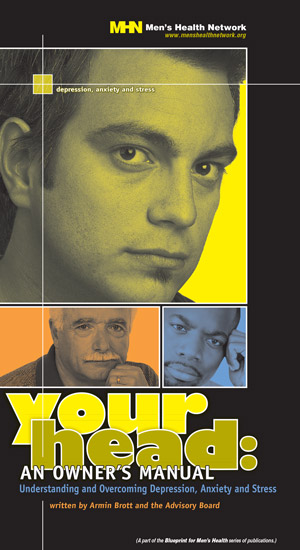Dear Healthy Men: I love my family, but I’m very frustrated about having to manage almost everyone’s health. While my daughter and I schedule our own doctor visits and mammograms, my husband and two teenage sons never do. In fact, I just spent half the morning making appointments (physicals for my sons, and a physical, colonoscopy, EKG, and dermatology checkup for my husband). I’m doing all this because I love them, but, honestly, I resent having to take care of things my husband and sons should be doing for themselves. Am I alone in this?
A: You’re definitely not alone: I often hear from women who, like you, have discovered that men’s health is a women’s issue and resent that the responsibility for keeping the males in their life (fathers, sons, husbands, brothers, boyfriends) healthy has fallen to them. Unfortunately, men’s lackadaisical attitude toward their health contributes to the fact that they’re far more likely than women to die of heart disease, stroke, and cancer. As we’ve discussed in this column, women now outlive men by five years.
The good news is that half of male premature deaths are preventable. But to accomplish that, men will have to make some serious lifestyle changes—something too few are willing to do—in part because from the time we’re little, we’re raised up not to cry, complain, or show signs of weakness.
Ironically, women pay a price for men’s poor health: because you live longer, you may see your husband and/or son suffer or die unnecessarily, leaving you to live on without their love, support, and companionship. Here’s what you can do right now to help.
Learn about Men’s Health
Because they often skip routine medical appointments, many men never learn that they have a deadly disease until it’s too late. Every year, over 174,000 men are diagnosed with prostate cancer and about 32,000 die (nearly the number of women who die of breast cancer). Caught early, through either a digital rectal exam (DRE) or a prostate-specific antigen (PSA) blood test, this disease is nearly always curable.
Testicular cancer is one of the most common cancers in men ages 15 to 35 and, like prostate cancer, is highly curable if caught early. But too few men know that they should examine their testicles monthly, and even fewer know how to do so.
Know the Warning Signs
- Does he get up five times a night to go to the bathroom or have you noticed blood in his urine? This can be an indication of bladder, colon, kidney, or prostate problems.
- Erectile dysfunction is an incredibly common—and potentially serious—condition that men generally fail to discuss with their doctors. More than half the time, it’s caused by a physical problem: atherosclerosis, high blood pressure, diabetes, or low testosterone levels. So if you want to make love and your husband says he has a headache, pay attention.
Check Him Out
Self-exams don’t have to be done by yourself, so why not ask your husband to help you with your monthly breast exams while you help with his testicular exams?
While you’re at it, do a head-to-toe skin check on one another. Women tend to get skin cancers on their hands, face, and legs; men get them on their backs, where they can’t see them.
Get Him to the Doctor
It’s critical to get your husband (and sons) into the habit of regular medical check-ups. Changes over time are key in assessing health. Encourage him to make his own appointments, but if he won’t, keep doing it yourself. (Doctors I’ve interviewed tell me that 25-50% of appointments for male patients are made by women.)
Promote a Healthy Lifestyle
The three most effective things you can do are to put your husband on a low-sugar-high-fiber diet, encourage him get regular exercise, and get him to quit smoking. These steps can drastically reduce the chances that he’ll succumb to the leading causes of death: heart and pulmonary diseases, cancer, stroke, and diabetes.
Be Patient
The goal here is to get your husband to take better care of himself, and to get your sons to start building good habits. These things take time. But with each small change, you’ll improve the quality and increase the length of the life you have with the men you love.




Recent Comments